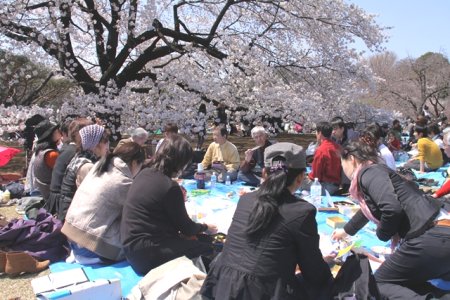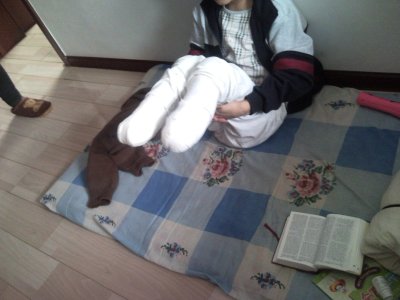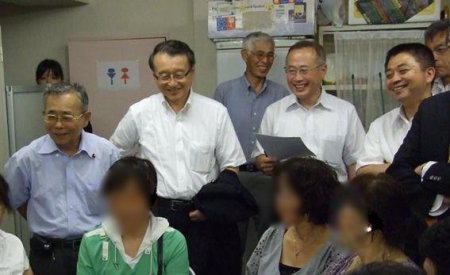Category Archives: North Korean Refugees
South Korean Embassy in Bangkok Told of Orphans
Notified by email
To help assure that the two North Korean orphans suffering from tuberculosis will immediately receive all necessary health care, LFNKR emailed the following message to the South Korean Embassy in Bangkok on Aug. 7, 2012.
Two Orphans Require Rescue
Boy & Girl Suffering from Tuberculosis
Life Funds for North Korean Refugees (LFNKR) is currently caring for a number of North Korean orphans living in the caves of Chanbai Mountain in China’s Jilin Province. Recently LFNKR received a report from our local staff that two of these North Korean orphans are suffering from Tuberculosis.
Cherry-Blossom Viewing Party in Tokyo

Cherry-Blossom Party with NK Defectors
On April 8, under a flawless blue sky, LFNKR members gathered at Shinjuku Park, one of the famous cherry-blossom viewing spots in Tokyo, to enjoy an “Ohanami” party under hundreds of cherry trees, all in full bloom. The Ohanami is a Japanese tradition for enjoying the beauty of cherry blossoms. Joining the party were many North Korean defectors whom LFNKR has helped and supported in their resettlement in Japan.
NK Orphan Needs Artificial Feet

LFNKR recently received a letter from a homeless child (Kot-jebi) forwarded by a Christian-based NGO in South Korea. The letter was written by a 13-year-old Kot-jebi, who lost his feet due to frostbite aggravated by severe burns. Mr. Kim, a Korean NGO director, has been working with Korean missionaries and local Korean-Chinese to support North Korean defectors and Kot-jebi, homeless children. LFNKR has decided to join them to help strengthen their local activities.
NK Refugee Passes 1st Level Language Exam
Just three years after arriving in Japan, I have passed Level 1 of the Japanese Language Proficiency Test, so I decided to write about my experience in the hope that it might encourage others.
When I arrived at Narita airport, I finally met the person who had worked so hard to get me to Japan. The first words he said to me were, “Why did you want to come to Japan?”. At the time, I could only manage simple greetings in Japanese, and although I could vaguely understand what he was saying, I could not reply in his language.
Outflow of NK Refugees Resumes
Burglaries Rise, Food Shortage Worsens
LFNKR received a seventh flash update on January 9 from a local staff member operating in China. According to his report, the outflow of NK refugees along the Tumen River, which had temporarily ceased, has begun again. Although border security remains strict following the period of mourning that marked the death of Kim Jong-il, a growing number of North Korean refugees are being seen in villages along the Tumen River.
LFNKR Annual Report Released for 2011
Introduction
The new currency system initiated in November 2009 by North Korea has led to serious confusion in the country’s economy. As a result, poverty continues to deepen. Around November 2010, even in Pyongyang where relatively privileged people live, the supply of food has stopped. The currency revaluation slashed the currency to 1/100 of its previous value, but by March 2011, the price of rice per kilogram had risen to 1800 NKW. This is the same price it was before currency reform, and it indicates a complete failure of the government’s plan to suck money from its citizens.
Classes Teach NK Refugees Language, Social Skills

1. How the Course Came About
Currently, 200 North Korean refugees have settled in Japan, and this number continues to grow steadily. To help refugees merge more easily into Japanese society, it is essential to establish and promote various forms of aid, the most crucial being Japanese language training. Despite the need, this country’s government has, so far, developed no plan to aid North Korean refugees in their settlement. Consequently, such aid has only been provided on a small scale, and left solely to the initiative of private volunteer groups or the self-help efforts of the refugees themselves.






